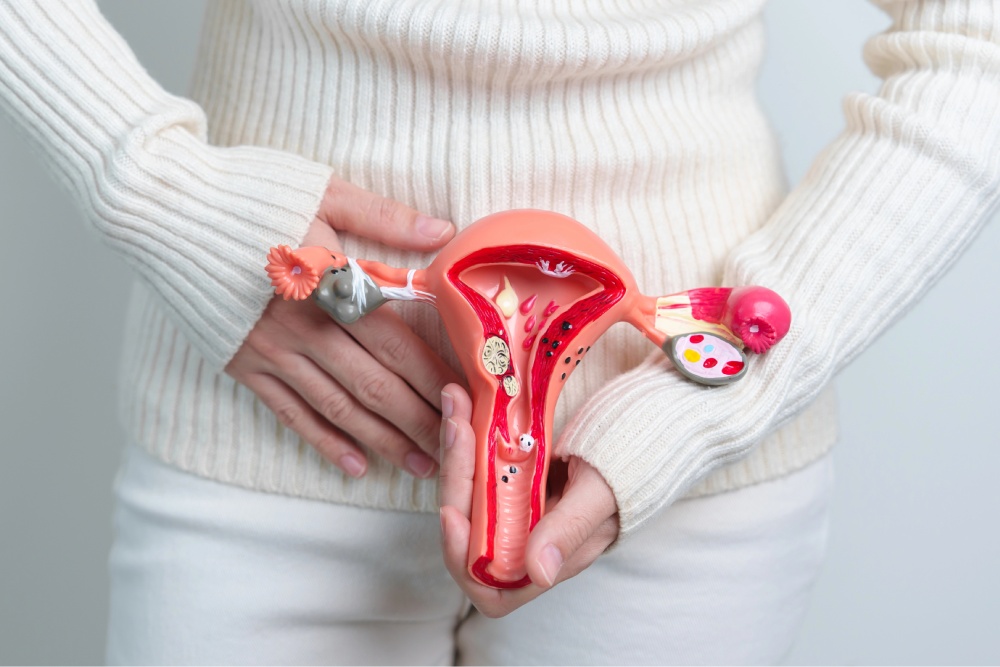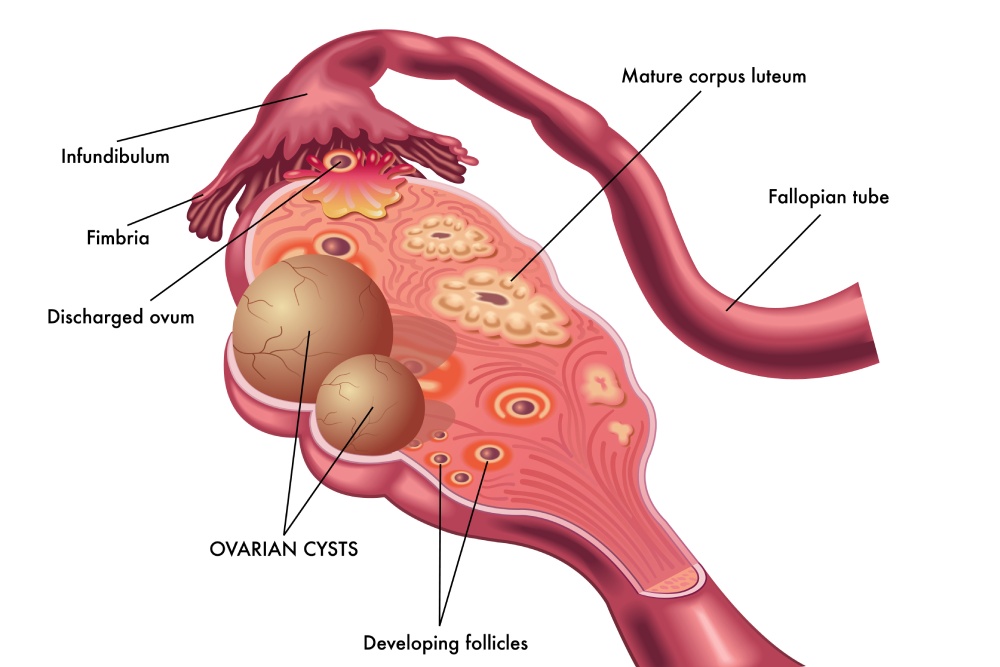
Surgical Solutions: Exploring Hysterectomy As A PCOS Treatment
Polycystic Ovary Syndrome affects millions of women worldwide, often bringing challenges like irregular periods, hormonal...
Read MoreEndometriosis is a complex and often misunderstood condition that affects millions of women worldwide. It occurs when tissue similar to the lining of the uterus, known as the endometrium, grows outside the uterus, causing various symptoms, including chronic pain and infertility.
The severity of the condition is classified into four stages of endometriosis, which are determined by the extent and location of the endometrial implants. This classification helps healthcare providers tailor treatment plans to patients' individual needs.

Stage I, or minimal endometriosis, is characterized by a few small implants or lesions on the pelvic organs or the pelvis lining. These implants are usually superficial, meaning they do not penetrate deeply into the tissue. Scar tissue is typically minimal or nonexistent at this stage, and the overall score on the classification scale ranges from 1 to 5 points.
Despite being labeled as minimal, the symptoms experienced during this stage can still be significant. Many women report experiencing painful periods, which can be as debilitating as those experienced at more advanced stages.
The minimal classification does not necessarily correlate with the severity of symptoms, as the location and activity of the lesions can also contribute to pain and discomfort. Women at this stage may still face challenges in their daily lives due to the condition's impact on their overall well-being.
Stage II, or mild endometriosis, involves more implants than stage I, with lesions penetrating deeper into the tissue. Some scar tissue may be present, but inflammation remains relatively minimal. The point score for this stage ranges from 6 to 15. As the disease progresses to this stage, the symptoms often become more pronounced, and the risk of complications such as infertility begins to increase.
At this stage, individuals may experience increased pain during menstruation and sexual intercourse, which can further impair their quality of life. The physical and emotional toll of managing endometriosis symptoms can be significant, and many women seek medical intervention to alleviate their discomfort and improve their daily functioning.
Treatment options may include medications, lifestyle changes, and therapies to manage pain and inflammation.
Stage III, or moderate endometriosis, is marked by a higher severity of the condition, with numerous deep implants and small cysts on one or both ovaries, commonly called "chocolate cysts" due to their dark appearance.
This stage also involves the formation of adhesions, which are bands of scar tissue that can bind organs together, leading to increased pain and complications. The point score for this stage ranges from 16 to 40.
The symptoms experienced at this stage can include severe pain during menstruation, sexual intercourse, and potentially other activities. Fertility issues may become more pronounced, and women may find it increasingly challenging to conceive naturally.
Adhesions and cysts can also contribute to digestive issues, such as bloating and gastrointestinal discomfort. As a result, the impact of moderate endometriosis extends beyond physical symptoms, affecting emotional health and quality of life.
Stage IV, or severe endometriosis, represents the most advanced form of the disease. It is characterized by numerous deep implants, large cysts on the ovaries, and thick adhesions throughout the pelvic region. The point score for this stage is 40 or more. The widespread nature of the disease often leads to significant pain and complications, including a high risk of infertility.
Women at this stage may experience excruciating pain that severely limits daily functioning, resulting in missed work, school, and social activities. The impact on mental health can be profound, with many individuals experiencing feelings of frustration, isolation, and depression due to the chronic nature of the condition.
The severity of symptoms at this stage often requires comprehensive management strategies, which may include surgical interventions, hormonal therapies, and multidisciplinary care approaches.
Regardless of the stage, endometriosis can profoundly affect all aspects of life, including physical health, mental well-being, relationships, and career. Early diagnosis and treatment are crucial to managing symptoms and preserving quality of life.
A gynecologist specialist can provide valuable insights and guidance in navigating treatment options tailored to the individual's needs.
It's important to note that the classification stages do not always align with the level of pain or symptoms experienced by the individual. Some women with minimal endometriosis may have severe symptoms, while others with advanced stages may experience milder symptoms. Personalized care plans are essential to address each patient's unique challenges and goals.
At The Women's Center, we understand the complexities and challenges associated with endometriosis. Our team of dedicated healthcare professionals is committed to providing personalized and compassionate care to help you manage your symptoms and improve your quality of life.
If you're experiencing symptoms of endometriosis or seeking a diagnosis, we invite you to schedule a consultation with our team. We are here to support you on your journey to better health and well-being, offering a range of treatment options and resources tailored to your needs.
Reach out to us today, and let us help you take control of your health with confidence and care.




Polycystic Ovary Syndrome affects millions of women worldwide, often bringing challenges like irregular periods, hormonal...
Read More
Ovarian cysts after menopause may seem uncommon, but they can still develop even when the...
Read More
Uterine fibroids are one of the most common benign growths affecting women. By age 50,...
Read More